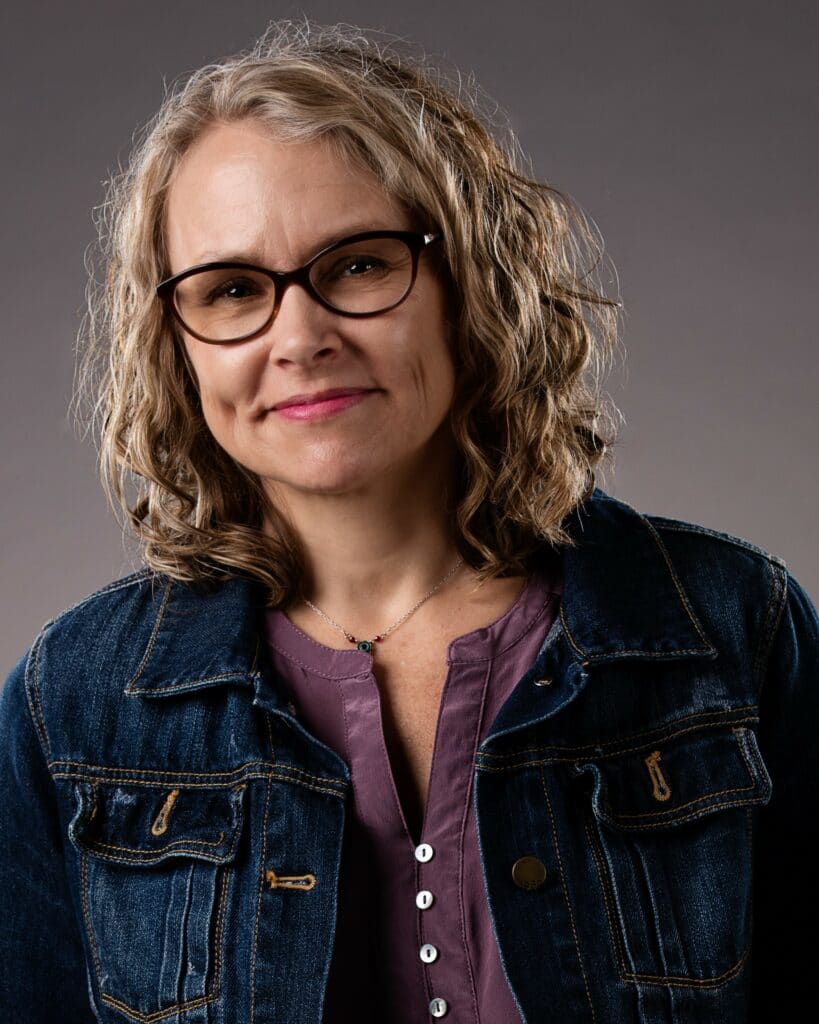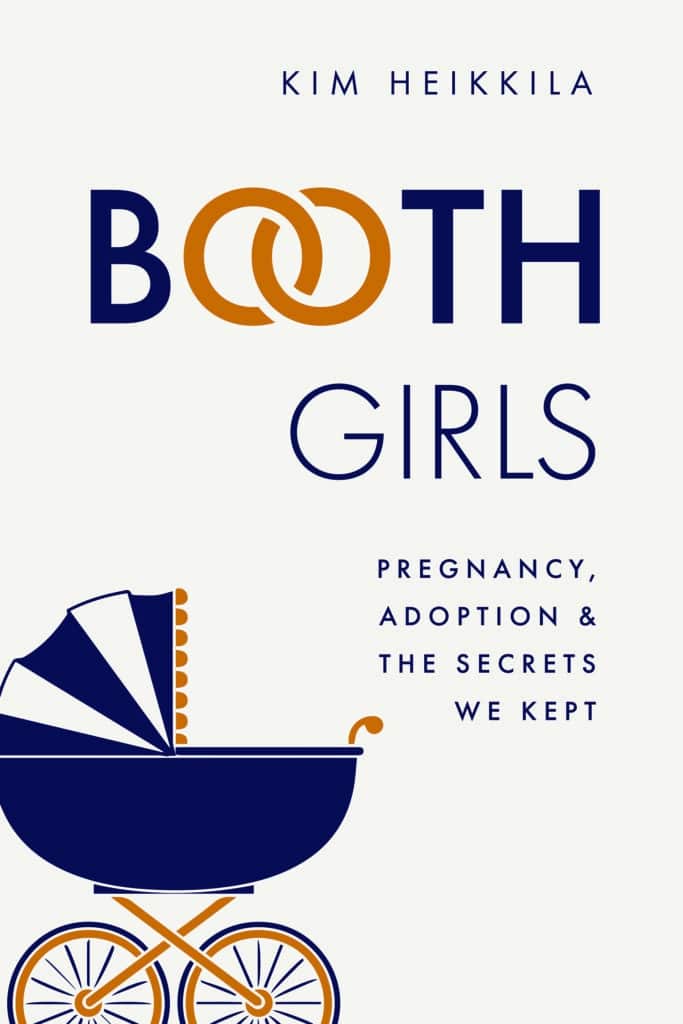Kim Heikkila, author of Booth Girls: Pregnancy, Adoption, and the Secrets We Kept
General Nonfiction Category, sponsored by The Duchess Harris Collection
Each week leading up to the 34th annual Minnesota Book Awards Ceremony, we are featuring exclusive interviews with our 36 finalists. You can also watch the authors in conversation with their fellow category finalists here.

Would you tell us one or two things about your finalist book that you are particularly proud of, and why?
I am pleased that Booth Girls features my mother’s writing in a substantive way. She was a talented writer, in many genres, and it was important to me to make that known and to tell her story at least partly in her own words. I also was intent on using different writing styles and voices in telling this story – I couldn’t see how to do it otherwise – and am happy that my wonderful editor, Ann Regan, supported the idea and helped me figure out how to make it work. I am very pleased with the book design (not my doing!), which I think helps readers navigate those different voices.
What do you hope that your audience learns or takes away from your book?

I hope readers learn something about the extreme pressures that were brought to bear on single pregnant women in the middle of the 20th century and the way those pressures were defined through class, race, and culture. There’s increasing awareness about this era thanks to a number of high-profile books and movies that have appeared in the past 10-15 years, but I wanted to explore how that history played out in Minnesota and affected a specific woman in a specific maternity home while acknowledging the ways in which structural forces and cultural biases shaped that woman’s (my mother’s) experiences. I also wanted to tell a nuanced story that looks at adoption from multiple perspectives and as honestly as possible. This was a difficult book to write because the issues it engages – shame, guilt, grief, loss, sex, mothering, adoption, infertility, race-, gender- and class-based injustice and privilege – are all very personal to me and my family. I hope readers learn something about this history and these women but also about themselves and, perhaps, their own families. We all live in, and through, and shape and are shaped by “history.”
What advice would you give to an aspiring writer with an interest in your category?
Tell a good story. Be attentive to the writing, not just the research. Try to engage your readers’ hearts as well as their minds. Do your work, know your stuff, be an expert on your topic, but then take a step back from the mounds of research you amass and be selective in the details you share as you tell the story. Be a guide through history for your readers, helping them make sense of all the information you have gathered so they don’t have to do it themselves (but footnote liberally so they can go to the sources if they choose!). And, caffeine helps (I don’t drink coffee but rely on a daily caffeinated Cool Mint Chocolate Clif Bar).
Tell us something about yourself that is not widely known.
I have been boxing for 17 years. I don’t compete, or even spar anymore, but I know and teach the sport of boxing. I also helped start Minnesota’s first Rock Steady Boxing program, a training program for people with Parkinson’s disease. My dad would have benefited from Rock Steady had it been around when he was dealing with Parkinson’s.
Minnesota enjoys a reputation as a place that values literature and reading. If this sentiment rings true for you, what about our home state makes it such a welcoming and conducive place for writers?
The Loft. The many book-and-author programs (e.g. Pen Pals, Talking Volumes, Wordplay, Talk of the Stacks, etc.). The Minnesota Book Awards. Multiple funding sources for research and writing. Long, cold winters conducive to reflection and indoor activities.
Since the onset of the pandemic in early 2020, virtually everything about our lives has changed in some way. Has COVID-19 (and its fallout) impacted your writing habits and preferences? Has the unique zeitgeist of the past two years influenced your writing output in any other ways that you can pinpoint?
I was just finishing my manuscript when the pandemic hit in the spring of 2020 and sent my (late) husband and son to work/school from home, which felt like a major intrusion on my quiet writing time and space. Noise-canceling headphones saved the day! For a while, I was attending as many author/book/writing events as previously, if not more, because they were so accessible through virtual platforms. The Zoom experience eventually lost its luster, however, so I was pleased when we could resume some in-person activities. My writing output has recently stalled, not because of COVID-19 but due to a major personal loss. I am hopeful that I will find my way back to the page in the future, however.
Kim Heikkila, PhD, is an independent scholar and president of Spotlight Oral History, as well as the author of Sisterhood of War: Minnesota Women in Vietnam, a previous finalist. She has taught courses on US history at colleges and universities in the Twin Cities area.

